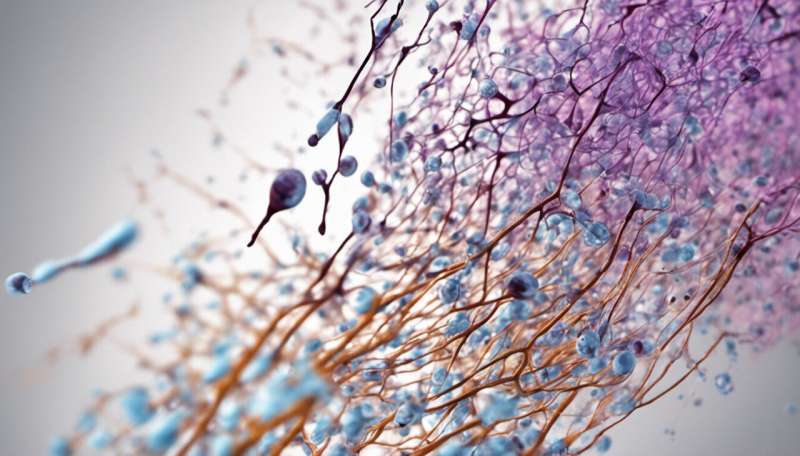Learning how a key protein affects programmed cell death could help to develop vaccines and drugs

A*STAR researchers have clarified the role of one particular regulatory protein in controlling the development of plasma cells, opening up several new avenues toward clinical applications.
Plasma cells produce large amounts of antibodies, which are the best-known weapons of the immune system against pathogens. "We are interested in understanding how plasma cells are generated with the aim of identifying new targets to modulate the antibody response, in particular during vaccination," explains Kong-Peng Lam of the A*STAR Bioprocessing Technology Institute in Singapore.
Lam and co-workers at A*STAR and the National University of Singapore investigated the part played by the protein downstream of tyrosine kinase 3 (DOK3). The researchers used genetic variants in mice to probe DOK3's activities, especially those involved in programmed cell death that must be subtly choreographed as an immune response develops.
"Our findings establish DOK3 as a key signaling molecule involved in the generation of plasma cells from their B-cell precursors," says Lam. DOK3 promotes the development of plasma cells by regulating the expression of two other proteins—programmed cell death 1 ligands 1 and 2 (PD-L1 and PD-L2)—that influence programmed cell death and were already known to be essential for plasma cell formation.
The results also showed that DOK3 acts by interfering with signaling processes mediated by calcium ions. As is generally the case with the immune system, the details are complex and the molecules involved can have differing effects depending on the situation. "DOK3 normally plays a negative role to inhibit the proliferation of B cells," says Lam, "but at some specific stages it also appears to play a positive role essential for plasma cell generation."
The clinical significance of DOK3 is quite diverse, says Lam. Drugs that reinforce DOK3 activity, for example, could help to boost antibody production especially during vaccination. On the other hand, drugs that inhibit DOK3 activity could be used to treat diseases such as multiple myeloma, in which plasma cells are transformed into cancer cells that accumulate in the bone marrow.
Lam adds that the findings may also lead to new ways to treat autoimmune diseases, in which the immune system turns against the body. By interfering with DOK3's activities, researchers can potentially modulate the production of the auto-antibodies that can do much of the damage in autoimmunity. The link between DOK3 and calcium-mediated signaling could also lead to clinical options that do not depend on drugs interacting with DOK3 directly, but instead modify calcium signaling systems.
More information: "Adaptor protein DOK3 promotes plasma cell differentiation by regulating the expression of programmed cell death 1 ligands." Proceedings of the National Academy of Sciences, USA 111, 11431–11436 (2014). dx.doi.org/10.1073/pnas.1400539111





















